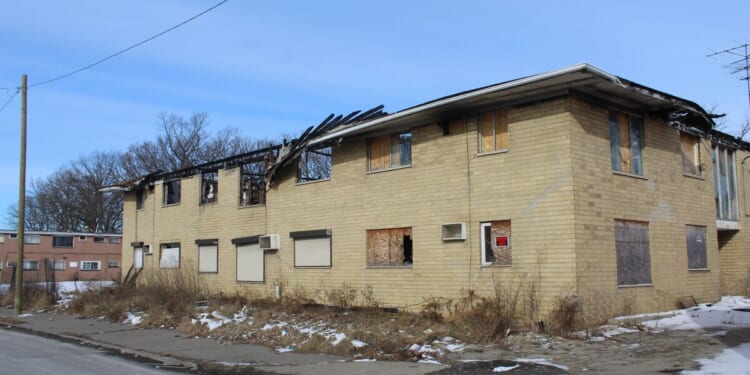Detroit has the most extensive and comprehensive zoning ordinance in the state of Michigan. The zoning law has evolved over time, mostly by getting more restrictive: Much of the current housing in the city would likely be illegal to build under zoning rules that have been put in place over the past few decades.
This makes it harder to build (or re-build) in the city. Even as Detroit has lost population, the city’s housing inventory is lower than in most of the country. Lower inventory leads to higher housing costs, which discourage growth in the municipality.
But Detroit is taking steps to address its housing shortage by reforming zoning laws. The City Planning Commission has recommended significant changes to the current code that would help expand supply and make things easier for homeowners and small businesses.
The proposals include:
-
Allowing homes to be built on smaller lots and with lower setback requirements everywhere.
-
Allowing up to four units or townhomes by right in neighborhoods zoned R2 (which is up from two).
-
Expanding conditional approvals for multifamily homes in R2 from 8 to 12 units.
-
Permitting Accessory Dwelling Units (ADUs) in most zoning districts.
-
Allowing multifamily housing by right in commercial zones.
-
Reducing parking mandates for both multifamily housing and small businesses while allowing flexible parking plans.
These are important reforms that move Detroit toward becoming a more flexible, livable, and affordable city. They make it easier for property owners to build the kinds of homes people need. Frankly, it is silly for the government to micromanage how much parking people need or the size of the homes they want to build.
Michigan used build much more housing than it does today, and as a result the state was known for affordable housing. But that advantage has disappeared. The state has fallen to 33rd in housing affordability nationwide and is staring down a housing shortage that has driven up prices.
Detroit’s zoning reforms show what local leadership can do to make housing legal again. But Michigan’s housing crisis demands even bolder action. State lawmakers should make it much easier to build the homes people want, permit safe single-stair buildings, limit or abolish minimum parking requirements, and protect against future downzonings. State and local authorities should streamline approval processes that often add years and costs to new housing projects.
If we want Michigan families to thrive in vibrant, affordable communities we must make it possible to build homes for them. Detroit’s progress is a welcome start.











